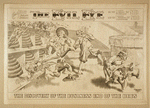"When my father's father died in the French Quarter of New Orleans sixty years ago, the popularly accepted story was that on a humid night in mid-August, he had eaten a dozen bananas and then taken a cold bath. He was a man of eighty-seven whose life had been a strenuous assertion of his appetites, and this explanation suited him, just as it suited his friends in the French Quarter. It would be more satisfying to me, it would allow me to feel that I owned my illness, if my urologist were to say: 'You know, you've beat the hell out of this prostate of yours. It looks like a worn-out baseball.' Nobody wants an anonymous illness. I'd much rather think that I brought it on myself than that it was a mere accident of nature."
---Anatole Broyard, "Doctor, Talk to Me"
Today's selection is taken from On Doctoring: Stories, Poems, Essays edited by Richard Reynolds, MD and John Stone, MD (with Lois LaCivita Nixon PhD, M.P.H. and Delese Wear, PhD). This book is given to all first year medical students in the United States and includes literary works (plays, poems, short stories, excerpts) by dozens of well-known authors on the subject of doctoring and what it entails. Some of these authors, such as the American modernist poet, William Carlos Williams, were doctors themselves and share their unique insights into the doctor-patient relationship.
Broyard is both wise and humorous in acknowledging the importance of fitting the diagnosis to the patient's needs and personality. This does not entail misconstruing the illness, but rather shaping the narrative of that illness so that it is consistent with the life of the suffering subject. This is not a small distinction. In the case of Broyard's grandfather who over-indulged, the tale of the bananas and cold baths that brought him to his death is wildly improbable, yet nonetheless "fits" the character of the man. His death, far from happening to him, is cast simply as the natural culmination of a life lived at a high pitch.
In the similar case of Broyard himself, it is clear that he desires agency. He does not want the doctor's reassurance that his prostate cancer is not his fault, a mere chance or accidental happening. Rather, he wants to know that his prostate was expended--hilariously "beat" (got to love that verb choice) through over-use. As Broyard concludes, "If only the patient could be allowed to see his illness as not so much a failure of his body as a natural consumption of it."
Subscribe to:
Post Comments (Atom)






No comments:
Post a Comment